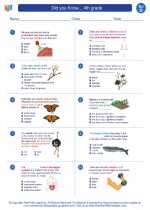Ribosomes
Ribosomes are cellular structures responsible for protein synthesis. They are found in all living cells, including prokaryotic and eukaryotic cells. Ribosomes can be found free-floating in the cytoplasm or attached to the endoplasmic reticulum.
There are two main components of ribosomes: ribosomal RNA (rRNA) and ribosomal proteins. These components come together to form small and large subunits, which work together to translate the genetic information from messenger RNA (mRNA) into a specific sequence of amino acids to form a protein.
Functions of Ribosomes
- Protein Synthesis: Ribosomes are responsible for linking amino acids together in the order specified by the mRNA, ultimately forming a functional protein.
- Cellular Growth and Repair: Ribosomes are essential for the growth and repair of cells, as they produce the proteins necessary for these processes.
- Regulation of Gene Expression: Ribosomes play a role in regulating gene expression by controlling the rate of protein synthesis.
Study Guide: Ribosomes
Key Concepts
- Structure of ribosomes
- Roles of ribosomal RNA and ribosomal proteins
- Locations of ribosomes in cells
- Process of protein synthesis by ribosomes
- Functions of ribosomes in cellular processes
Study Questions
- What are the main components of ribosomes?
- How do ribosomes contribute to protein synthesis?
- Where can ribosomes be found in a cell?
- Explain the process of translation by ribosomes.
- What are the key functions of ribosomes in cellular processes?
Study Tips
- Visualize the structure of ribosomes and their components.
- Understand the step-by-step process of protein synthesis by ribosomes.
- Relate the functions of ribosomes to cellular growth, repair, and gene expression.
- Use diagrams and animations to aid in understanding ribosome function.
Hope this helps in your study of ribosomes!
[Ribosomes] Related Worksheets and Study Guides:
.◂Science Worksheets and Study Guides Fourth Grade. Did you Know... 4th grade
Study Guide Did you Know... 4th grade
Did you Know... 4th grade  Worksheet/Answer key
Worksheet/Answer key Did you Know... 4th grade
Did you Know... 4th grade  Worksheet/Answer key
Worksheet/Answer key Did you Know... 4th grade
Did you Know... 4th grade  Worksheet/Answer key
Worksheet/Answer key Did you Know... 4th grade
Did you Know... 4th grade 

 Worksheet/Answer key
Worksheet/Answer key
 Worksheet/Answer key
Worksheet/Answer key
 Worksheet/Answer key
Worksheet/Answer key

The resources above cover the following skills:
Core Ideas for Knowing Science
Life Science
Organisms are organized on a cellular basis and have a finite life span.